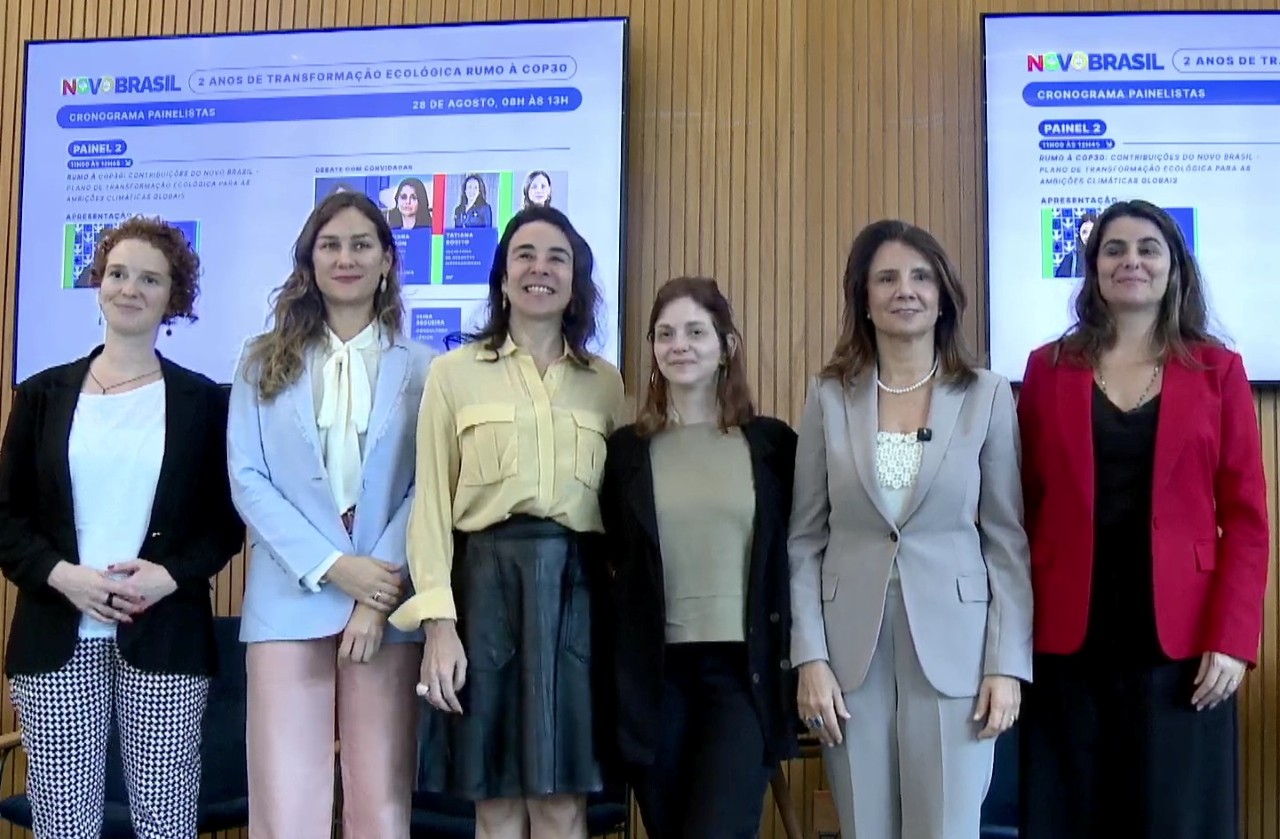Brasil leads by example in climate financing through cooperation
Since the G20 summit, the combined efforts of Brasil’s Ministry of the Environment (Ministério do Meio Ambiente e Mudança Climática/MMA) and its Ministry of Finance (Ministério da Fazenda/MF) in advocating new and additional ways to finance climate action have inspired countries around the world. This track record is expected to result in robust proposals at COP30.

By Mayara Souto / COP30
On Thursday, August 28, Ana Toni, COP30 CEO, announced at the Rio Climate Week event celebrating the two-year anniversary of the New Brasil—Ecological Transformation Plan that "COP30 is a COP on financing because it is a COP on implementation." The program proposes policies and tools to promote sustainable, low-carbon development in Brasil, serving as a "manual" for implementing the country's Nationally Determined Contributions (NDCs).
Also known as the Ecological Transformation Pact, the commitment signed by the heads of Brasil’s three branches of government is an example of how the implementation of international obligations can become a reality, as proposed by the COP30 presidency. For this, cooperation between government ministries—Environment and Finance—as well as with political branches, is crucial. Ms. Ana Toni noted that she received praise for this recognized integration in Brasil, during a meeting of environment ministers in Mexico City, which she attended earlier this week.
“There is a thirst to understand how we are doing this in Brasil, what we are doing, and how we are joining efforts to bring something concrete to COP30. What most motivates me at COP30 is moving away from big numbers, and the Finance Circle has done this incredible work—moving beyond the trillions and billions we need to mobilize,” explained the executive director, referring to efforts to detail, for example, how the carbon market works, forms of sustainable investment, types of global funds for environmental preservation, among others.
These issues are addressed within COP30’s Finance Circle, which was created to provide input for the Baku-to-Belém Roadmap. The document under development will supply elements for achieving the USD 1.3 trillion goal for climate financing in developing countries.
“We draw from international processes while also seeking to transform direct relations through partnerships. At the G20, we succeeded in this because when President [Lula] established the climate task force, this interesting combination of people and coordination among the ministries of Foreign Affairs (Ministério das Relações Exteriores/MRE), Environment, and Finance created a very favorable environment, and we were able to successfully take it abroad. This was important for the Circle we have today,” reflected Ambassador Tatiana Rosito, a member of the Finance Circle.
Deliveries
The Secretary for International Affairs of the MF also recalled that the cooperation initiated at the G20 gave rise to the Tropical Forests Forever Fund (TFFF)—a global fund intended to compensate countries for keeping forests standing. During Brasil’s presidency of BRICS, this debate continued, culminating in the first Declaration on Climate Financing from Global South countries.
And now, at COP30, the TFFF is expected to be officially launched, following discussions within the Finance Circle. This global fund aims to provide annual compensation to countries that preserve their tropical forests. It has the potential to protect up to 1 billion hectares across more than 70 countries and mobilize up to USD 125 billion through blended finance.
In addition to this mechanism, the Open Coalition for Regulated Carbon Markets will also be presented. This initiative aims to be an International Alliance to integrate carbon pricing systems and establish common trading standards among countries
